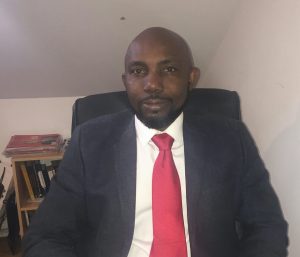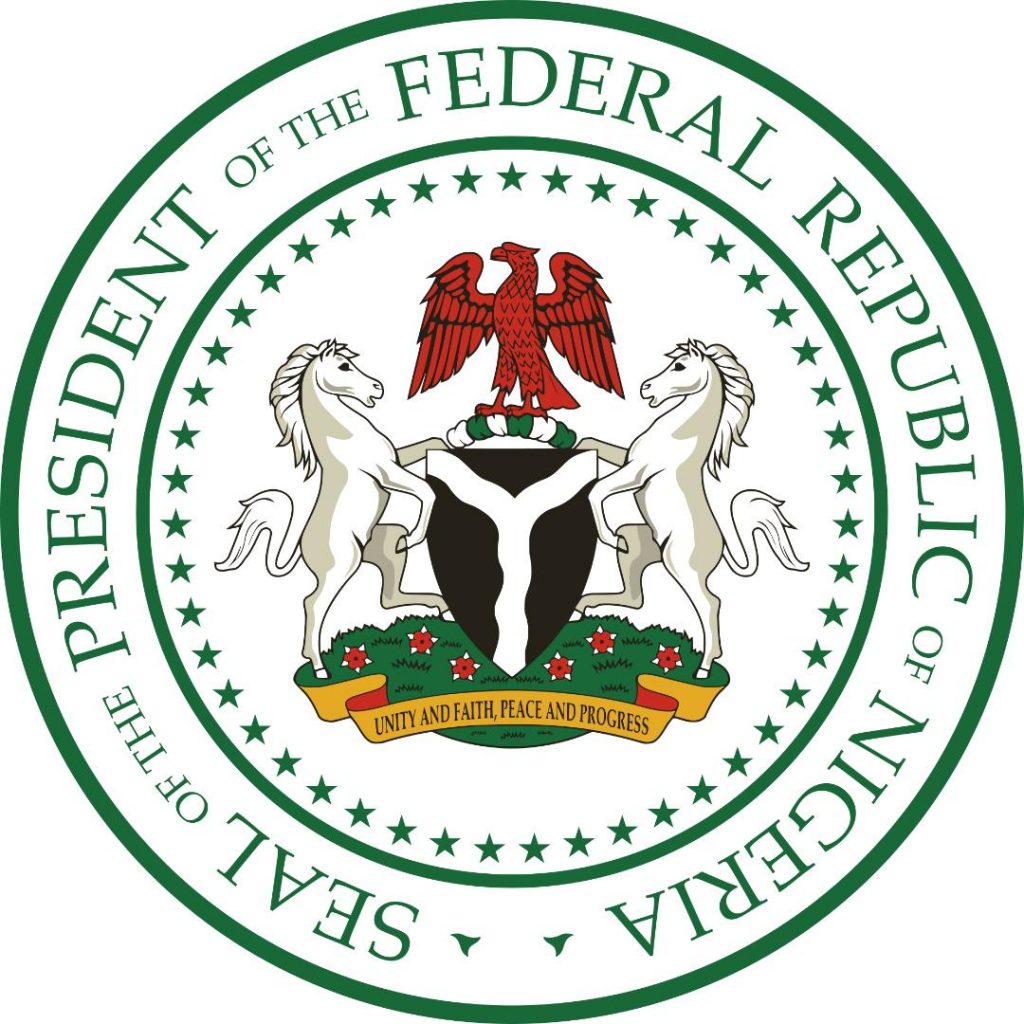They don’t know what they are talking about, I don’t believe in true federalism. What is true federalism? Why are they (the states) not accountable? What powers do they not have? They have power. In fact, state governors are more powerful than the president. That’s the truth. So if anybody tells you they want devolution or true federalism, he doesn’t know what he is talking.~ Olusegun Obasanjo
With the above words, the Ebora Owu dismissed the calls for restructuring and true federalism in a chat with African Arguments published on 28th September 2017. The issue which has dominated the news agenda in the past few months is also being championed by none other than his arch-rival and former Vice President Atiku Abubakar who has made it the focal point of his renewed quest for the top job.
In fairness to him, Obasanjo has never been a proponent of devolution. Understandably, this can be attributed to his background as a soldier. His time in Aso Rock was dotted by the tendency to centralise rather than decentralise power. He rode roughshod over perceived obstacles, deposing governors, senate presidents and a police chief as he strode boisterously around the country like a colossus.
As usual many including yours truly will be quick to dismiss whatever is attributed to Obasanjo, but let us put the old soldier aside and critically interrogate his missive.
Federalism comes in varying forms, that much I am sure most of us will agree with. The common denominator, however, is that all forms have a relationship of shared authority between the component levels of government as agreed by the federating units. No system of government is perfect, therefore nation-states keep evolving to adjust whatever system is practised to present day realities.
Our federalism has been plagued by inter-ethnic rivalry, power-sharing and revenue allocation to mention just a few. The calls for restructuring are therefore not entirely misplaced, but some like Balarabe Musa has said that many chanting the song are doing so for selfish reasons. And truth be told, we have been restructuring since Independence, perhaps not in the manner many of the recent disciples envisage. But then again different regions have different interpretations and reasons for restructuring. Let us take a stroll down history lane to examine the pattern of the calls for restructuring.
After Aguiyi Ironsi’s declaration of a unitary system on the 24th of May 1966, it is on record that the old Northern and Western regions were critical of the decree while the Eastern region remained silent. The North particularly was vociferous in their attacks and accused Ironsi of planning to foist Igbo domination on the entire nation. While Aguiyi dithered the North took their umbrage to the peak and assassinated him in Ibadan on the 29th of July 1966.
It is pertinent to note that Aguiyi’s decree 34 did not strip the regions of resource control yet the North kicked because he was not their own.
What followed was an extensive era of successive Military governments mostly headed by northerners that established revenue review committees. These committees more or less acted as morticians for the final cremation of the derivation principle of revenue sharing that formed the nucleus of our federal system of government.
Indeed the lopsided centralisation of resources actually started when Awolowo, acting as Gowon’s Federal Commissioner of Finance reduced derivation on the recommendation of the 1968 Dina Commission. Despite the rejection of this by the Council of Commissioners of Finance from all the regions, the Gowon administration enacted decrees 13, 9 of 1970 and 1971 respectively which appropriated a large portion of exploration and consolidated revenue to the centre. The old Eastern region was disgruntled but coming from the defeat of a protracted civil war the region was too ravaged to utter a whimper.
The Murtala and Obasanjo regimes even went further to allocate more to the centre. Murtala’s decree 6 allotted only 20% of oil royalties to the producing states the Federal Government got 80%. Obasanjo’s Aboyade Technical Commission vanquished the allocation to the Niger Delta as the centre retained 100% of mining rents and royalties
This was the end of the road for derivation and what many perceive as the end of our fiscal federalism. Crude oil which then contributed over 70% to the national purse was taken from the states and federalized to be shared according to the whims of the man in Abuja.
In all these years there was muted disapproval from especially the South East and South South but the notorious high-handedness of military rulers was enough deterrence to make potential agitators have a rethink.
Our second stint at democracy did not solve the problem as Shagari retained the 100% derivation at the centre bequeathed by Obasanjo. It wasn’t until the 1995 Constitutional Conference during the Abacha regime approved a 13% derivation for littoral states that we began to see some semblance of a return to fiscal federalism. However, it is also noteworthy that cries of marginalisation by MOSOP rented the air from 1992 till the state execution of Ken Saro Wiwa in late 1995.
Obasanjo’s second coming as a civilian president saw him abolishing the offshore/onshore dichotomy ruling of the Supreme Court in 2004 via an act of parliament. This ‘magnanimity’ elicited applause from the political elite of the Niger Delta and Akwa Ibom whose oil resources are virtually 100% offshore found itself in stupendous wealth. Once again the South relaxed on calls for restructuring.
The Yar’adua era saw the South screaming again for federalism and when Jonathan took over the shouts automatically stopped in the South-South and South East. The South West continued screaming as the region was excluded from the top 6 elected positions in Jonathan’s administration.
With Buhari’s victory coming from the alliance of the South West and the North, the pendulum has swung to the South East and South South to lead the screams for restructuring and even secession.
I have taken time to elucidate this timeline so that it shouldn’t require sorcery to decipher that the volume of the screams for marginalisation or restructuring is often directly proportional to the distance between ‘our own’ and the seat of power in Abuja.
Some have argued that we should shred our constitution because it is largely a product of military decrees. They claim that the men and women who drafted these decrees consulted no one and obviously had little or no agenda for our collective good. Nothing could be further from the truth.
The 1999 constitution produced by Justice Niki Tobi is an adoption of the 1979 constitution produced by Justice Udo Udoma with input from Chief Rotimi Williams, all jurists of outstanding pedigree. Both had committees with elected representatives from the local council and I recollect that K.O Mbadiwe represented Ideato/Nkwere/Isu in the 1977 constituent assembly. If these men of timber and calibre made contributions to our constitution then I believe we should be talking of practising it to the letter.
However, my argument is not to jettison the idea of restructuring, far from it, prior to 1999 the country had changed its constitution seven times. But the same constitution which has continued to receive flack has somehow kept the jackboots in the barracks for 18 years now. So you see, we have been restructuring and will keep evolving. It is like a journey and not a destination.
For instance, I believe we can continue by agitating for better security through the creation of state police. I have seen improved security in my home state of Anambra largely because of community policing. The town unions have security outfits funded by the state government. They have vehicles, arms and communication equipment. More often than not they are the first to arrive at trouble spots while the DPO and his men are still assessing the size of a complainant’s pocket.
I have also seen infrastructural development in Anambra and Enugu states where the good works started by Ngige and Chimaroke were amplified by Sullivan Chime and Peter Obi while Theodore Orji took Abia state from Orji Uzor Kalu’s frying pan to fire.
I am all for devolution but can we start by holding our regional elected officials accountable? Over the years 13% derivation has amounted to about 5trillion paid to Oil producing states. What do they have to show for it? Former Minister of Niger Delta Godsday Orubebe couldn’t complete East/West road under Jonathan but he had a private jet parked in Abuja. James Ibori returned to a hero’s welcome from a UK jail and Sule Lamido who allegedly laundered billions in his 8 years as the governor of poverty-ridden Jigawa state has announced his ambition to rule Nigeria.
So you see it is not enough to jump on the bandwagon of those chanting federalism and restructuring because without good governance all that will amount to nothing. It is time to start agitating for good governance and accountability. At 57 years the discourse in Nigeria should be dominated by ideas and suggestions for proper education and the creation of jobs, jobs and more jobs!







